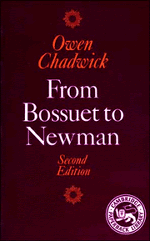PREFACE TO THE FIRST EDITION
Published online by Cambridge University Press: 04 April 2011
Summary
On 9 October 1845 John Henry Newman, one-time leader of the Oxford movement in the Church of England, was received into the Roman Catholic Church by Father Dominic the Passionist in the little private oratory at Littlemore. Less than two months later he published as the reason or account or vindication of this step a justly celebrated book—the Essay on the Development of Christian Doctrine, which hereafter I shall describe with brevity as the Essay on Development or even as the Essay. My purpose has not been to reassess the dogmatic validity or otherwise of that book, since such reassessments have been common enough. As is appropriate in lectures upon the Birkbeck foundation, my purpose has been primarily historical, to set that book in the context of intellectual history.
I have confined my attention to the comparatively narrow field of the idea of doctrinal development. The wider question I have not sought to tackle, the idea of philosophical development as it was maturing from Leibniz through Lessing to Herder and Hegel and then to Darwin: the destruction or transformation of older cosmologies like ‘the Great Chain of Being’, the rise of the idea of progress, the change from the partially unhistorical theories of the Enlightenment to the more deeply historical consciousness of the nineteenth century (now believed to be less of a radical change than was at one time thought)—these are subjects which impinge upon my own but which have been discussed by many in recent times, not least by members of our own Faculty of History.
Information
- Type
- Chapter
- Information
- From Bossuet to Newman , pp. viii - xiiPublisher: Cambridge University PressPrint publication year: 1987
